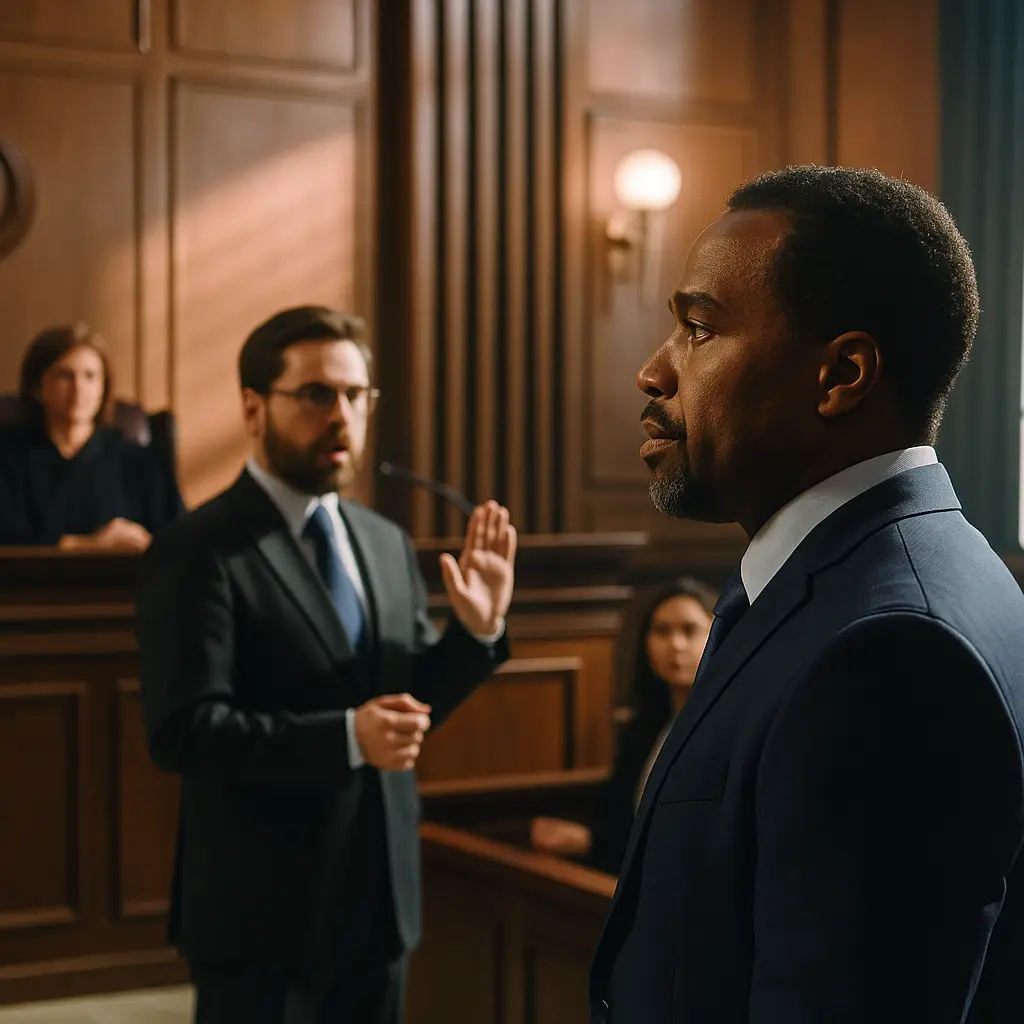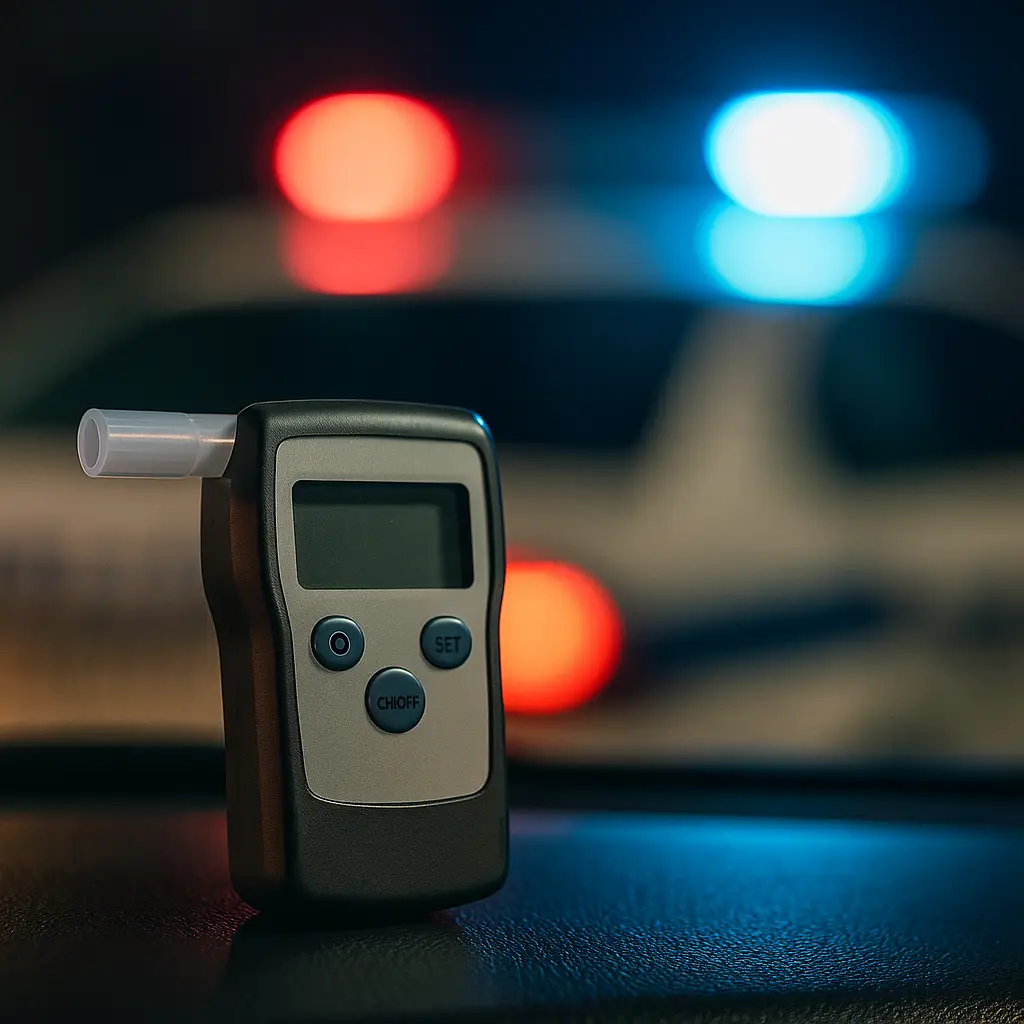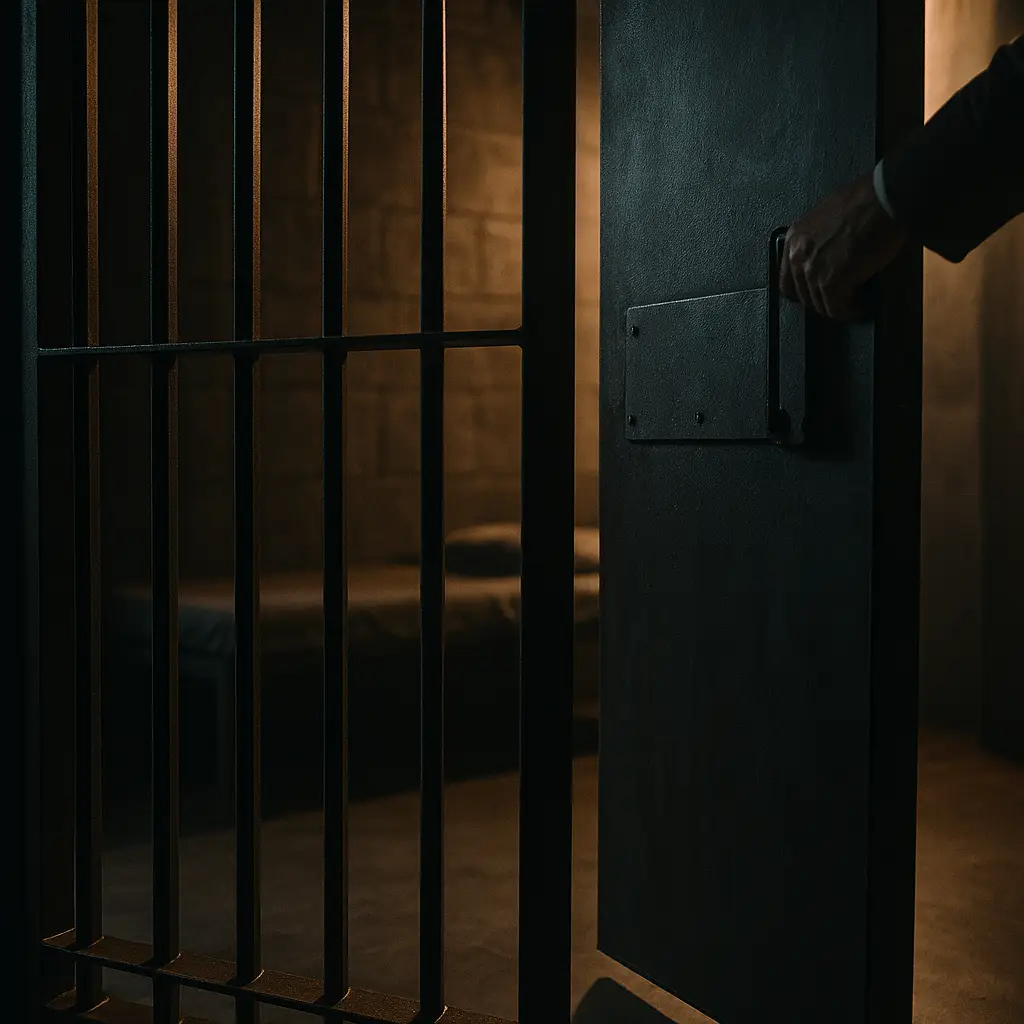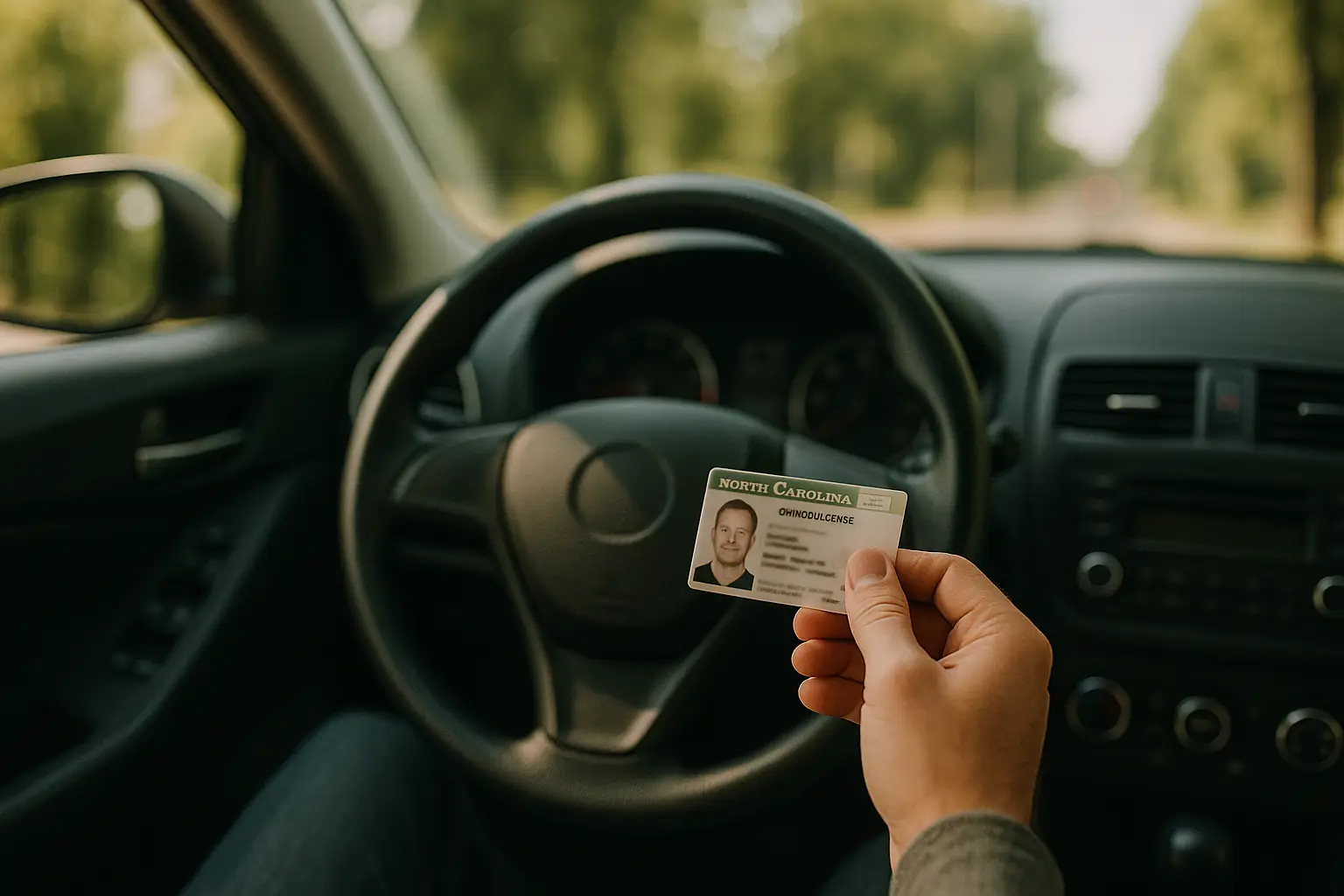DWI Defense Options and Sentencing in Greensboro, NC:
Strategies for the Triad
Imagine the quiet dread settling over a late-night drive through Greensboro’s bustling Wendover Avenue or High Point’s industrial corridors, where a momentary lapse leads to flashing lights and a DWI charge that could upend your world. In Guilford, Alamance, and Randolph Counties, from Burlington’s community hubs to Asheboro’s rural stretches, these accusations strike at the heart of everyday lives, carrying penalties that echo long after the arrest. Yet, even if guilt weighs heavy, options exist to challenge, mitigate, or navigate the storm: tailored defenses probing officer errors or evidence flaws, and sentencing levels that hinge on aggravating or mitigating factors. With thousands of DWI cases behind us, we’ve seen lightning strike in unlikely ways like a misplaced report turning a sure loss into a dismissal. At our office on 328 East Market Street, we stand as your Triad allies, examining each detail to better tell your story. If you’re facing this crossroads, friend, let’s uncover your path. Contact us today for a free consultation to explore defenses and minimize impacts.
Six Common DWI Defense Options:
Building Your Case in Guilford County
Even a seeming certainty of guilt opens doors to robust defenses in Guilford County’s courts, where we’ve secured dismissals and reductions by exploiting procedural gaps or evidentiary weaknesses. The key lies in a thorough probe: was the stop justified, tests accurate, or rights upheld? Here are six strategies we’ve employed across the Triad, tailored to local nuances like High Point’s traffic-heavy zones or Alamance’s rural patrols.
- The Absence of Reasonable Articulable Suspicion: Officers must have concrete facts, not hunches, to stop you, as required for probable cause. In Greensboro, where weaving might stem from fatigue rather than impairment, we’ve argued invalid stops based on vague observations, leading to suppressed evidence and case dismissals.
- Inaccurate Field Sobriety Tests: Only three tests, the Horizontal Gaze Nystagmus (HGN), the walk-and-turn test, and the one-leg stand, hold NHTSA scientific backing. Any others lack validity. Proper administration of these tests requires training, and we’ve challenged the smallest deviations in Court. For instance, when Alamance’s uneven roads and some heavy traffic may have skewed results, we turned those roadside “failures” into inadmissible claims.






3. Inaccurate Breath Test: Breathalyzers detect ketones from alcohol processing, but aren’t perfect, with machine errors or external factors like medical conditions frequently affecting the results. In Randolph County stops, we’ve invalidated readings by highlighting calibration issues or recent mouth alcohol, reducing charges, or securing acquittals.
4. Improper Administration or Tampering of a Blood Test: Blood draws follow strict chains of custody; lapses in storage or documentation can ferment samples or break protocol. We’ve exposed these in Asheboro hearings, where hospital draws went awry, rendering results unreliable and significantly weakening the State’s case.
5. You Were Not Driving the Vehicle: Proof of operation is essential. Sitting near your parked car with keys in the ignition differs from active driving. In High Point scenarios where driving was merely assumed, we’ve secured dismissals, arguing that the evidence of actual driving falls short.
6. The Officer Violated Your Civil Rights: From improper Miranda warnings to unwarranted searches, breaches of your civil rights may cause evidence to be suppressed. In Alamance County, where stops sometimes overstep, we’ve invoked Fourth Amendment protections to suppress sobriety tests, arguing for dismissals when protocols weren’t followed.
These options aren’t exhaustive. Each case demands an in-depth look at details such as officer testimony or video. We’ve turned “hopeless” defenses into wins by exploring them all. If a charge looms, let us examine your case.
Aggravating and Mitigating Factors:
Influencing Your Sentence in the Triad
Sentencing for DWI in North Carolina hinges on a balance of aggravating and mitigating factors, tipping the scale across five levels (plus aggravated A1) in Guilford County courts. Aggravating elements, like a BAC over .15, reckless driving, or child passengers, push a judge toward harsher outcomes. While mitigating ones, such as safe driving or voluntary alcohol treatment, pull in a different direction, toward leniency. In High Point or Burlington, where aggravating factors like prior records amplify sentences, we’ve swayed judges to reduce levels and penalties by emphasizing our clients’ positive factors.
Aggravating Factors:
- Gross impairment (.15 BAC or higher)
- Especially reckless or dangerous driving
- Negligent driving leading to a reportable accident
- Driving while license revoked (DWLR) for impairment-related reasons
- Two or more prior convictions for impaired driving or other traffic offenses within five years
- Serious injury caused by impaired driving
- Driving with a child under 16 in the vehicle
Mitigating Factors:
- Slight impairment (.09 BAC or lower) without grossly aggravating factors
- Safe and lawful driving at the time of the offense
- Statutorily safe driving record (no convictions within five years carrying four or more points)
- Voluntary submission to mental health assessment and treatment
- Completion of substance abuse assessment, education, or treatment
No aggravating factors with mitigating factors present lead to Level 5. One aggravating factor or balanced factors to Level 4 or 3, two lead to Level 2, three or more to Level 1, or A1 if grossly aggravating factors are present.


Breaking Down the Five DWI Sentencing Levels and Aggravated A1
Level 5 Sentencing: The Mildest Path
Level 5 applies when any mitigating factors outweigh any aggravating factors or when no aggravating factors exist. This is common in first-offense cases. Penalties include a $200 fine and 24 hours to 60 days in jail. Jailtime can be suspended for 24 hours of community service or probation. There is also a one-year driver’s license suspension. This is not restorable without an alcohol assessment. We’ve helped clients here avoid jail through probation, emphasizing clean records.
Level 4 Sentencing: Balanced Factors
When mitigating factors balance a single aggravating factor, this will likely lead to a Level 4. Level 4 brings a $500 fine, 48 hours to 120 days in jail, which can be suspended for 48 hours of community service or probation, and a one-year license suspension. We’ve negotiated suspended sentences for treatment compliance, turning potential incarceration into managed probation.
Level 3 Sentencing: When Aggravating Factors Tip the Scale
One aggravating factor without a mitigating factor to offset it yields Level 3: $1,000 fine, 72 hours to six months in jail, which can be suspended for 72 hours of community service or probation, and a one-year license suspension. We’ve lessened penalties with voluntary programs, avoiding full terms.
Level 2 Sentencing: Harsher Realities
Two aggravating factors or child involvement mean Level 2 which comes with a $2,000 fine, seven days to 12 months in jail (minimum seven days which cannot be suspended unless 90 days sober via CAM and 120 hours community service), and one- to four-year license suspension. Greensboro judges allow CAM alternatives (continuous alcohol monitoring technology). We routinely secure these for clients, which, in addition to being a mitigating factor, eases the restoration of limited driving privileges post-suspension.
Level 1 Sentencing: Severe Penalties in Burlington
Three aggravators or child presence dictate Level 1, a $4,000 fine, 30 days to 24 months in jail (minimum 30 days, reducible to 10 with 120 days CAM), and one- to four-year or permanent suspension.
Level A1 Sentencing: The Heaviest Burden
Three grossly aggravating factors trigger A1, a $10,000 fine, 12-36 months in jail, 12-month minimum, which is reducible to 120 days with CAM, and a 4-year or permanent license suspension. These cases demand rigorous defense. After compliance with A1 sentencing, there is still a driver’s license restoration to navigate. See our license restoration page for more information.


How a DWI Affects Your License: Restoration Paths in the Triad
If you are convicted of DWI, your license will be revoked. 1 year for levels 3-5, 4 for repeat offenders, and permanent for multiples. Yet, limited privileges under N.C. Gen. Stat. § 20-179.3 allows driving for work, school, medical, service, treatment, emergencies, or worship, often 6 a.m.-8 p.m. weekdays, extendable with documentation. Eligibility requires levels 3-5 and a valid license at charge. If your BAC was over 0.15, and ignition interlock will be mandatory. If revocation hits, explore our limited driving privileges page.
Why Delay? Secure Your Defense with Our Greensboro Team
A DWI doesn’t end your story in the Triad’s resilient communities, from High Point’s vibrancy to Burlington’s roots, defenses, and mitigators reclaim futures. With decades of DWI triumphs, our Greensboro attorneys tailor strategies, from challenging stops to negotiating privileges, easing fines and jail. We’ve dismissed charges through “lightning” moments like officer errors, as clients attest: “They got my case dismissed by showing improper procedure – brilliant.” If facing DWI, let us fight for you. Contact us now for a free consultation, and let’s turn options into outcomes in Guilford County.

